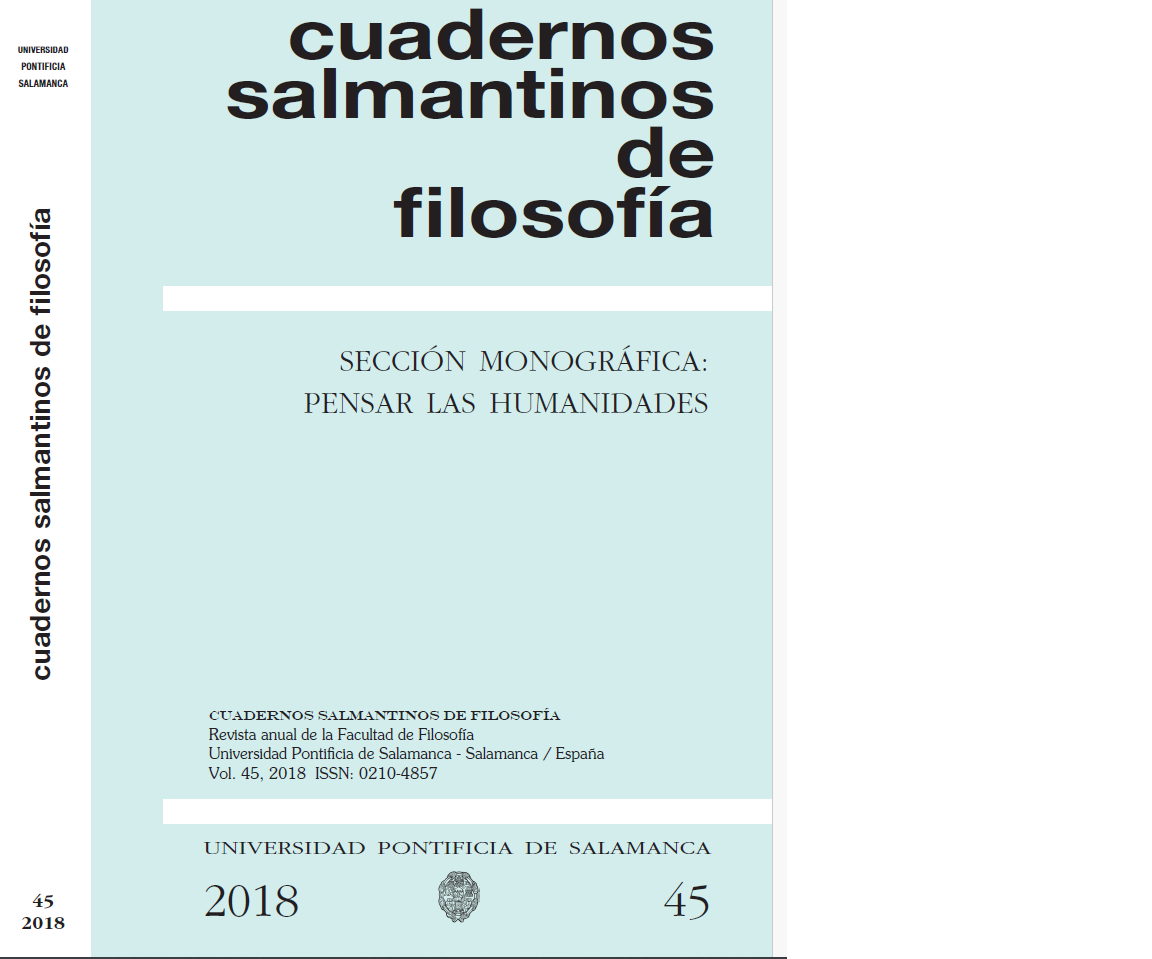Pensar (no sólo) las humanidades
Contenido principal del artículo
En el presente artículo se defiende la idea de que la situación de precariedad en la que vive el conjunto de las disciplinas humanísticas denota, no un problema disciplinar, sino todo un marco en el que se entiende que se dan las razones de tal situación. El objetivo principal de este artículo será hacer una llamada a la colaboración de conocimientos interdisciplinares para trascender una visión burda y fragmentada del conocimiento; visión que está a la base del argumento de la inutilidad de las humanidades. Por contra, en este artículo propongo que las humanidades conforman un tipo de conocimiento muy útil. Para poder entenderlo, aplicarlo y enriquecernos con él tenemos que cambiar el marco actual del sistema de conocimiento que está empobreciendo las posibilidades de conocer y transformar el mundo. Ello nos llevará a la necesidad de pensar el conocimiento en su globalidad (científico y humanístico), la educación y la democracia en el contexto de la sociedad global actual.
Detalles del artículo
Citas
BENJAMIN, Walter, “Sobre el programa de la filosofía venidera”. En BENJAMIN, Walter, Para una crítica de la violencia, Iluminaciones IV. Madrid: Taurus, 1999, 11-134.
BURKE, Peter, A Social History of Knowledge I: From Gutenberg to Diderot. Cambridge: Polity Press, 2000.
–, A Social History of Knowledge II: From the Encyclopaedia to Wikipedia: 2. Cambridge: Polity Press, 2012
CAMPÁS MUNTANER, Joan y FUSTER-SOBREPERE, Joan, “Les humanitats en la societat del coneixement i a la Universitat”, Temps d’educació, n.51, 2016, 67-82.
CORTINA, Adela, “Es un error pensar que no hay innovación en las humanidades”, entrevista realizada en noviembre de 2017 en Lima, en la Pontificia Universidad Católica de Perú. Disponible en: (http://vicerrectorado.pucp.edu.pe/academico/noticias/adela-cortina-es-un-error-pensar-que-no-hay-innovacion-en-las-humanidades/) [Consulta: 2 febrero 2018].
EPSTEIN, Mikhail, The Transformative Humanities: A Manifesto. London: Bloomsbury, 2012.
–, “Inventive Thinking in the Humanities”. Common Knowledge, 23, 1, 2017, 1-18.
FISH, Stanley, “Will the Humanities save us?”. The New York Times, 6 Enero 2008.
HONNETH, Axel, Patologías de la razón. Historia y actualidad de la teoría crítica. Buenos Aires: Katz Editores, 2009.
JEFFRIES, Stuart, Gran Hotel Abismo: una biografía coral de la Escuela de Frankfurt. Madrid: Turner, 2018.
LEAVIS, Frank Raymond, Two Cultures. The Significance of C.P.Snow. London: Cambridge University Press, 1962
LLEDÓ, Emilio, Sobre la educación. Barcelona: Taurus, 2018.
LUNSFORD, Andrea, “Can the arts and humanities ‘save us’?”. Stanford Report, February 11, 2009. Disponible: https://news.stanford.edu/news/2009/february11/future-arts-humanities-fish-021109.html [Consulta: 3 marzo 2018].
MARINA, José Antonio, El aprendizaje de la sabiduría. Barcelona: Ariel, 2009.
MORIN, Edgar, Introducción al pensamiento complejo. Barcelona: Gedisa: 1995.
NUSSBAUM, Martha El cultivo de la humanidad: una defensa clásica de la reforma en la educación liberal. Barcelona: Andrés Bello, 2001.
–, Sin fines de lucro. Por qué la democracia necesita de las humanidades. Buenos Aires/Madrid: Katz Editores, 2010.
PARDO, José Luis, “¿Hay que defender las humanidades?”. El País, 22 Julio 2016.
SAHLBERG, Pasi, Finnish Lessons: What Can the World Learn from Educational Change in Finland? New York: Tecahers College Press, 2011.
SAHLBERG, Pasi; HASAK, Jonathan; y RODRIGUEZ, Vanessa, Hard Questions on Global Educational Change Policies, Practices, and the Future of Education. New York: Teachers College Press, 2017.
SNOW, Charles Percy, The Two Cultures and the Scientific Revolution. London: Cambridge University Press, 1959.
TUBBS, Nigel, Philosophy’s Higher Education. London: Kluwer Academic Publishers, 2015.
URSÚA, Nicanor, “El pensar humanístico frente a las humanidades digitales”. Límite, vol.11, n.36, 2016, 32-40.
VALLÉS-BOTEY, Teresa, “Les Humanitats, motor de desenvolupament”. Temps d’Educació, 51, 2016, 47-65.
WILSON, Edward O. El sentido de la existencia humana. Barcelona: Gedisa, 2016. Universidad Pontificia

